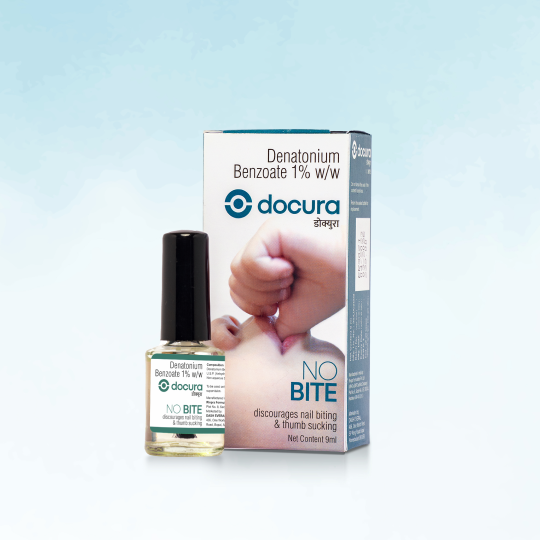
Navigating the First Year: A Comprehensive Guide to Your Baby's Milestones
The first year of your baby's life is an incredible journey filled with rapid growth, exploration, and countless precious moments. As parents, understanding and celebrating the key milestones of your baby’s first year can enhance your experience and ensure you provide the best support for your little one. In this comprehensive guide, we'll walk you through the exciting developmental stages, share parenting tips, and address common concerns. Let's embark on this incredible adventure together!
Physical Development:
Growth: During the first year, babies typically triple their birth weight and grow about 10 inches. Regular weight and length checkups help monitor this growth.
Motor Skills: Progression from basic reflexes to intentional movements, such as rolling over by 4-6 months, crawling by 6-10 months, and standing or taking first steps around 9-12 months.
Grasping Objects: From initially gripping objects with their whole hand to the development of the pincer grasp, allowing them to pick up small items using their thumb and forefinger.
Cognitive Development:
Visual Development: Newborns have limited vision but gradually develop the ability to track moving objects and recognize faces by 2-3 months.
Cognitive Milestones: Around 4-6 months, babies start responding to their name, tracking toys with their eyes, and showing curiosity by reaching for objects.
Language Development: Coos and babbles emerge around 3-4 months, leading to the first recognizable words by 10-12 months.
Social and Emotional Development:
Attachment: Babies form a strong bond with primary caregivers, usually evident by seeking comfort and security in their presence.
Smiling and Laughing: Social smiles appear by 2 months, progressing to intentional laughter as babies respond to play and humor.
Emotional Expressions: A wide range of emotions, from joy to frustration, becomes more apparent as babies learn to express themselves.
Feeding and Nutrition:
Breastfeeding or Bottle Feeding: Establishing a feeding routine based on the baby's hunger cues.
Introduction of Solid Foods: Starting around 6 months, babies begin exploring new tastes and textures with the introduction of purees and soft solids.
Growth Spurts: Recognizing and accommodating periods of increased feeding during growth spurts, typically around 2-3 weeks and 6 weeks.
Sleep Patterns:
Sleep Cycles: Newborns sleep for short periods throughout the day, gradually consolidating into longer periods at night.
Napping: As babies grow, naps become more predictable, usually totaling 3-4 hours during the day. Napping is an essential aspect of their overall growth and well-being.
Health and Immunizations:
Well-Baby Checkups: Regular visits to monitor growth and development and address any parental concerns with your pediatrician are always advisable to parents.
Immunizations: Following the recommended schedule for vaccinations to protect against various diseases. Here also, regular consultations with an expert pediatrician before and after vaccination care is important.
Safety Concerns:
Babyproofing: Securing the home environment to prevent accidents as babies become more mobile.
Supervision: Constant supervision during playtime, especially when babies start exploring their surroundings. Put sharp objects out of their reach and avoid letting them play alone to avoid small injuries.
Parenting Tips:
Bonding Activities: Suggestions such as skin-to-skin contact, cuddling, and talking to enhance the parent-child bond.
Reading to Your Baby: Introduction of Colorful, Age-appropriate books to stimulate visual and auditory senses.
Playtime Ideas: Incorporating toys that encourage sensory exploration, grasping, and motor skill development.
Speech and Language Development:
Cooing and Babbling: Early vocalizations, with cooing emerging around 2 months and babbling by 4-6 months.
First Words: Recognition of the typical age range for a baby's first recognizable words, usually around 9-12 months. These are crucial months for language development, so staying and communicating with affection and love with the baby would work wonders to develop their communication. Also, a harmonious communication environment among the family members will result in an emotionally healthy baby.
Motor Skills Development:
Tummy Time: Regular sessions of tummy time starting from early infancy to strengthen neck and upper body muscles. Also, massaging the body regularly with a good massage oil, as per our Indian tradition, works wonders for the baby’s bone and muscle health.
Sitting Independently: The gradual progression from supported sitting to independent sitting, is typically achieved by 6-8 months.
Teething:
Teething Signs: Recognizing symptoms such as increased drooling, fussiness, and the appearance of the first teeth.
Teething Remedies: Tips for providing comfort during teething, including teething toys and chilled teething rings.
Your baby's first year is an extraordinary chapter filled with love, laughter, and growth. By understanding and celebrating these first-year milestones of your baby, you're not only fostering their development but also creating cherished memories that will last a lifetime. Embrace the journey, savor every moment, and watch as your baby blossoms into a remarkable little individual. Cheers to the adventure of the first year!


